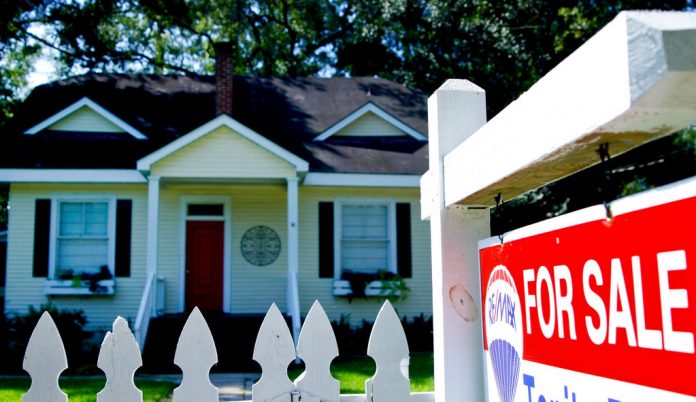NEW YORK – Sales of previously owned United States homes rose to a four-month high as buyers, fueled by a solid job market and and tax cuts, quickly snapped up the limited number of available properties, National Association of Realtors data showed Monday.
Highlights of existing-home sales (March)
- Contract closings advanced 1.1 percent month to month to 5.6 million annual rate (est. 5.55 million), from 5.54 million
- Median sales price rose 5.8 percent year over year to $250,400
- Inventory of available properties fell 7.2 percent year over year to 1.67 million, lowest for March in data back to 1999
Key takeaways
The increase reflected gains in higher-priced homes as well as condominiums and co-op units, according to NAR. Even with the advance in sales, concerns about low inventory remain prominent, with the limited number of new properties pushing up costs and reducing activity at the lower end. Half of homes sold in March were on the market for less than a month, the group said.
Sales of homes priced between $100,000 and $250,000 were down 7.8 percent from a year ago, while homes at $750,000 or above were up more than 15 percent. NAR said it expects inventories to pick up around late summer or autumn in part because housing permits are rising and construction wages are advancing, drawing in more workers. There’s also potential for regulatory changes among small banks, a key source of loans to homebuilders.
While the U.S. tax law passed in December has given Americans more disposable income that may support housing demand, it also put new limits on deductions for mortgage interest and local property taxes, reducing incentives in areas such as New York and New Jersey. Potential homebuyers are citing the tax law less frequently as a worry, though they are concerned about interest rates rising, NAR said.
Existing-home sales account for 90 percent of the market and are calculated when a contract closes. March figures are due Tuesday for new-home sales, which are tabulated when contracts get signed, making them a timelier indicator despite their smaller share.
Official’s view
“The March figure is good; we are still being challenged by the lack of inventory, however,” Lawrence Yun, NAR’s chief economist, said at a press briefing accompanying the report. New listings are up compared with a year ago, but they “are being gobbled up quickly,” Yun said. “Low-end inventories are being drained away,” and with so little supply, there are few transactions, he said.
Other details
- Purchases advanced in two of four regions, led by a 6.3 percent gain in the Northeast compared with February; sales in the Midwest rose 5.7 percent, while South was down 0.4 percent and West was 3.1 percent lower
- At the current pace, it would take 3.6 months to sell the homes on the market, compared to 3.4 months in February; Realtors group considers less than a five months’ supply as consistent with a tight market
- Single-family home sales increased 0.6 percent last month to an annual rate of 4.99 million
- Purchases of condominium and co-op units rose 5.2 percent to a 610,000 pace
- Homes spent 30 days on market, compared with 37 days in February and 34 days in March 2017 First-time buyers made up 30 percent of sales, down from 32 percent a year ago; “There are simply not enough homes for sale in their price range,” NAR President Elizabeth Mendenhall said in statement
Katia Dmitrieva is a reporter for Bloomberg News.











